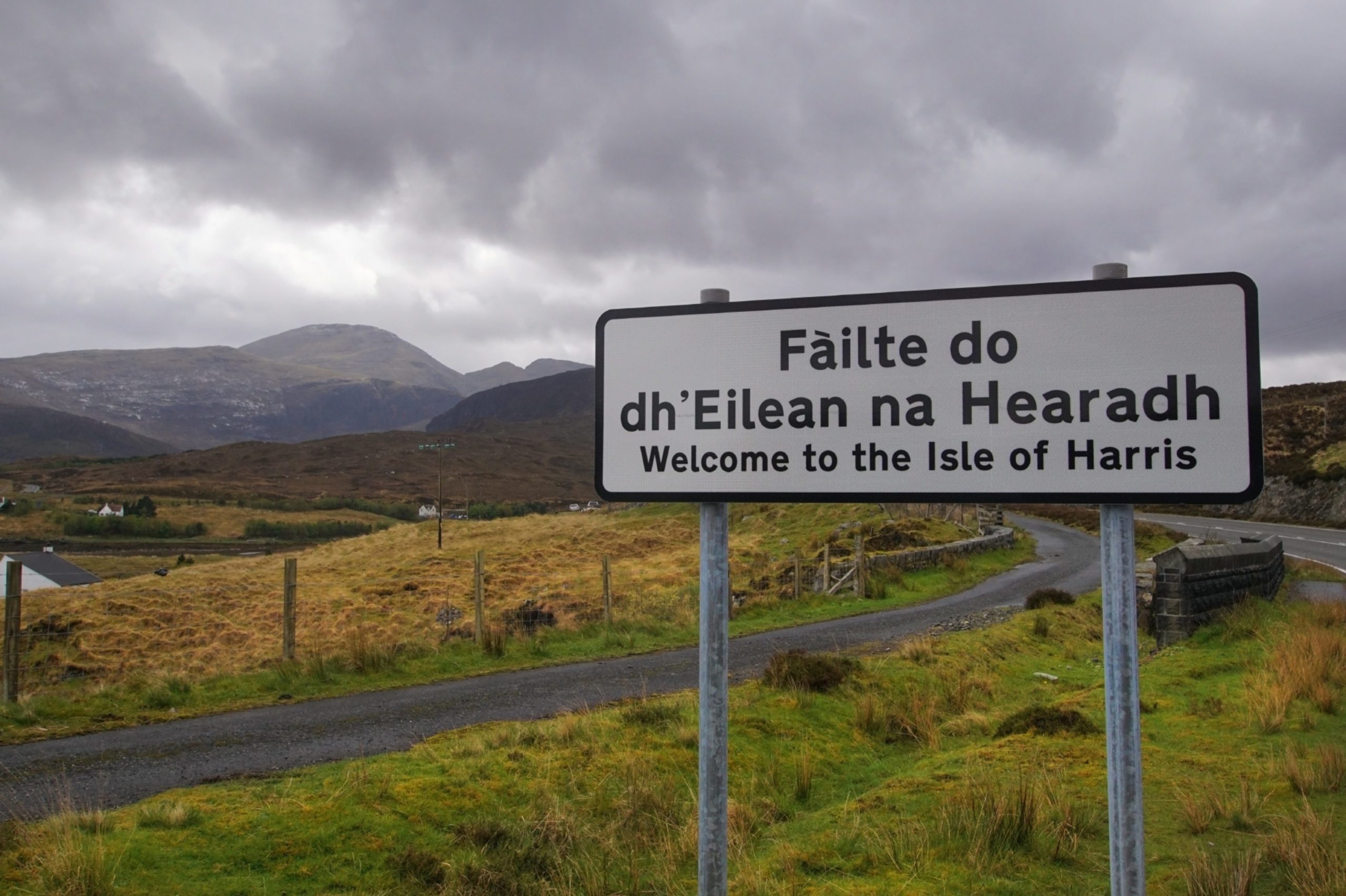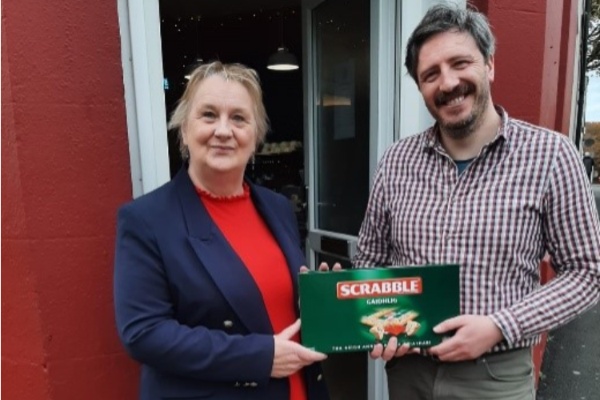Savouring a glass of uisge beatha with a pal in the Ben Nevis pub in Glasgow many years ago, I heard someone speaking Gaelic next to me.
We asked our barside neighbours where they were from and got talking to them. One came from Stornoway, and the other was from Barra.
The one from Barra had about him an air of melancholy exile, which is all too easy to understand if you have ever visited his beach-fringed home – which I had. Accordingly, when my friend and I were leaving, I dredged up from the recesses of my mind the phrase “oidhche mhath leibh.”
A rapturous expression crossed our friend from Barra’s face, and he seemed to open like a flower. OK, he was blotto. But, still. It was a reminder of how much language and culture matter to people.
For centuries now, we have been busily despising and dismantling the Gaelic language, such that, today, its survival hangs by a thread. It’s easy to feel angry and despondent about this lamentable state of affairs – harder to work out what to do about it.
When we moved to the small settlement of Rhenigidale on the Isle of Harris in 2015, I thought I would definitely learn Gaelic. It would be the perfect opportunity. And it’s not like I’ve never learnt a language before. I am a linguist, with a degree in French and German.
However, somehow, it never happened. I did attend evening classes. I did learn some phrases. But I cannot claim to have learnt Gaelic.
Teaching and learning is difficult without lots of native speakers
A local friend who is a Gaelic speaker believes new islanders should be given two years to learn the language, before being packed off back to the mainland if they haven’t achieved this goal.
I have quite a lot of sympathy with her position, in much the same way that I sympathise with Berliners who’re fed up arriving in achingly trendy bars in the city’s East to be presented with a barperson who says: “Sorry, ich kann kein Deutsch. Could you say that in English?”
However, when I suggested to a Gaelic language campaigner that people who move to Gaelic-speaking areas should be offered quasi-compulsory Gaelic lessons, he asked me who I imagined would teach them. And there’s the rub. Without a critical mass of native speakers, everything else you might do to nurture a language becomes difficult, verging on impossible.
We should have nipped things in the bud at the point where Berlin’s coolest neighbourhoods are now. If the monoglot bartenders have children and expect them to be able to speak English in school, then, truly, those Berlin Kieze will be heading towards the same linguistically corroded place as our Gaelic-speaking communities.
‘They all speak English’ won’t do
These things can change in a flash. Fifty years ago – and 50 years is a flash in the history of a language – everyone in Rhenigidale would have spoken Gaelic as their first language. Now, just one person does.
That’s why the lazy mantra of “they all speak English” won’t do, at home or abroad. If we impose English on others, it has consequences. May the University of Aberdeen, which has told all staff in its modern languages, translation and interpreting section that they are at risk of redundancy, take note. We need more language learning, not less.
For think what we lose if we give up on language learning. The unique insights that each language brings. The mental agility that comes from seeing the world through different lenses. In the case of Gaelic in Scotland, the deep connection to our history and landscape contained in that tongue.
Therefore, An Taigh Cèilidh in Stornoway – the Gaelic cultural centre and community cafe behind the new Gaelic Scrabble – deserves a big shout-out. Not all native speakers welcomed it; one described it to me as a Gaelic ghetto, and I do see the weirdness of creating a special place in Stornoway to speak Gaelic. But we are where we are.
You aren’t routinely greeted in Gaelic in other Stornoway cafes, and the worst thing you can do when the tide is against you is to stop swimming.
I popped into Taigh Cèilidh last week for coffee and cake. Other than wishing my neighbour a happy new year, that is honestly the first time I have communicated in Gaelic outside a classroom setting. While I was there, a workman with an English accent came in to order his Gaelic Scrabble. It’s hard to overestimate the power of that.
I can’t fully explain it, but visiting the cafe opened a door for me that has hitherto been closed. Perhaps it has something to do with shared enthusiasm and a sense of possibility. Now, I’m caning the Duolingo, getting out the old grammar books and looking forward to my next visit.
Tha mi air bhioran! The coffee and walnut cake was good, too.
Fiona Rintoul is an author and translator



Conversation